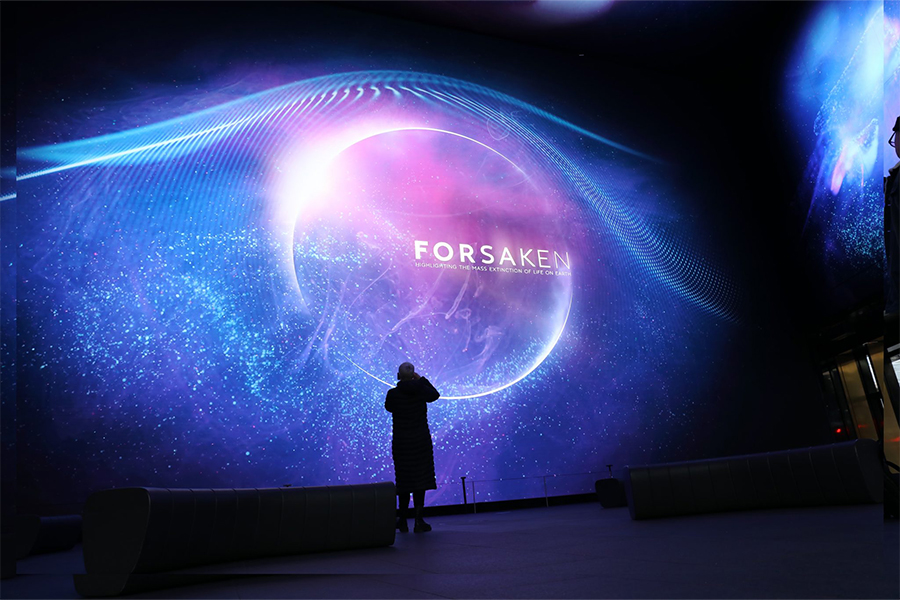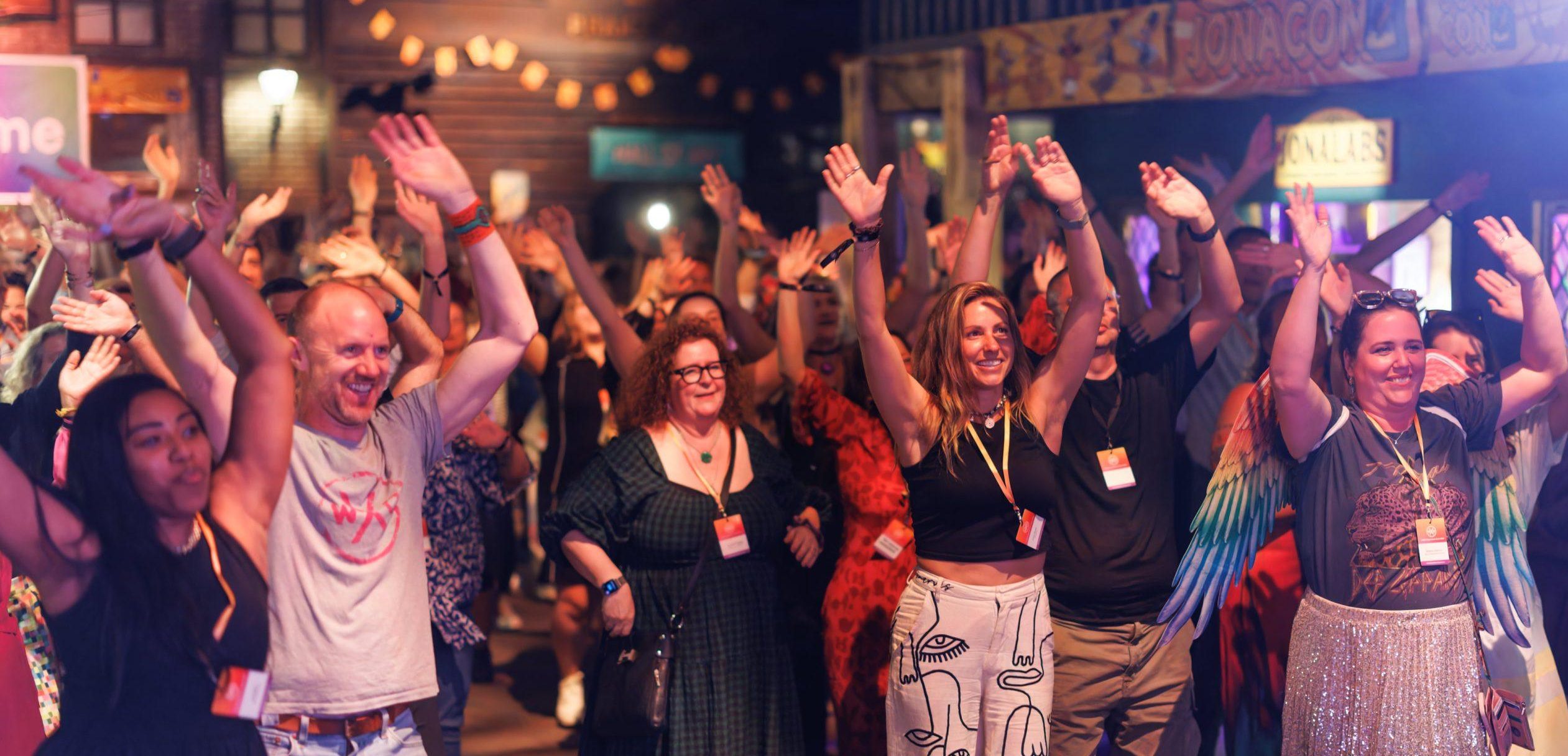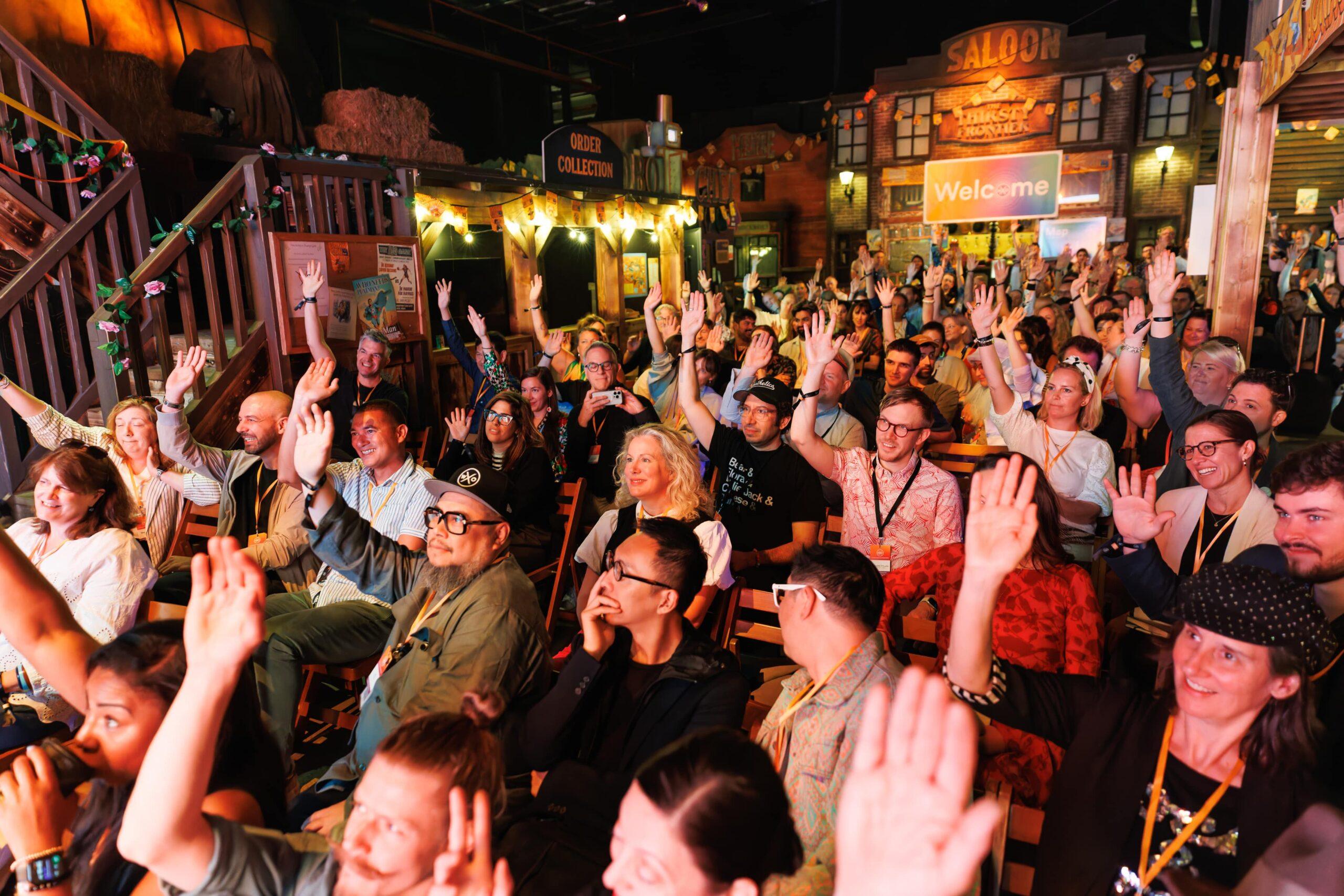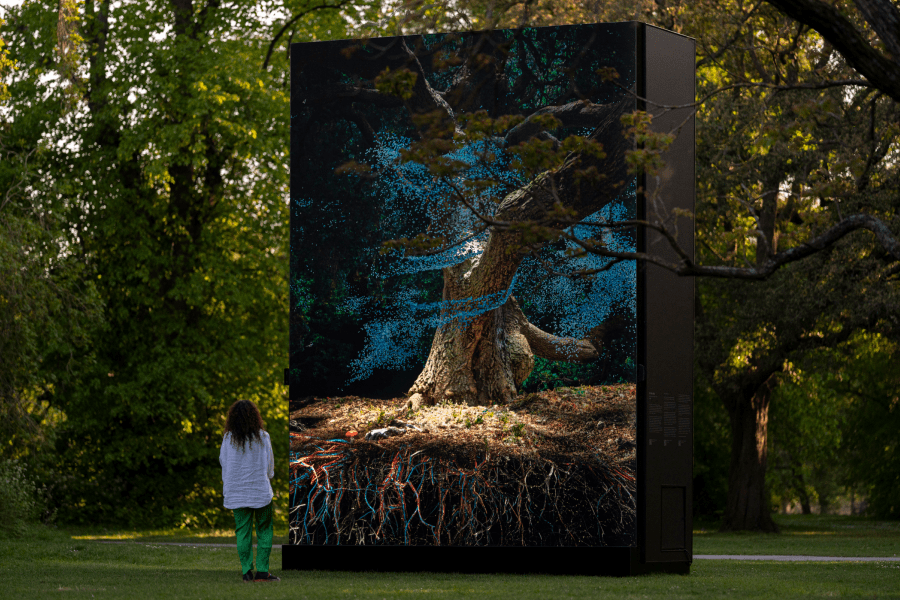At The WXO, we want to connect the dots across the Experience Economy and across the globe – so each month, we’ll be bringing you our round-up of the experiential stories that we think reveal something interesting, relevant or transferrable about the Experience Economy.
Welcome to the latest Experience Radar, where we’re turning into avatars to test out virtual try-on tech, enjoying a Himalayan salt sauna at New York’s latest wellness club, and finding a hack for happiness with the Matter app.
1. Outernet Using AI Cameras To Track Visitors
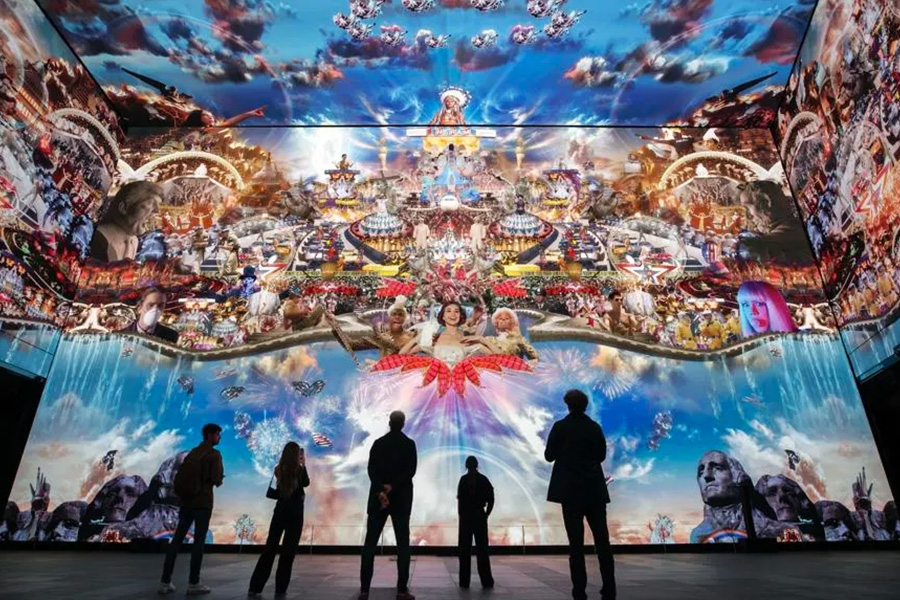
In a rather Orwellian development, experiential success story Outernet in London is harvesting key information on visitor demographics, gender and behaviour via AI-powered cameras in order to improve the visitor experience. As reported by The Art Newspaper, the open-sided venue’s 6.3 million annual visitors are being tracked by video analytics provider BriefCam, which uses ‘deep learning’ to teach computers to process data like the human brain. “We are exploring sophisticated methodologies around dwell time and how this is influenced by what the public come to see, time of day, weather and cultural calendar moments,” an Outernet representative told the publication.
“We are working towards offering some of the most advanced campaign reporting in the world. This, in addition to our neuroscience research, as well as our more traditional research methodologies, provides us with robust insights about visitors and their experiences,” the rep added. According to Outernet, all of the data it harvests is “anonymised and protected”. In line with the UK General Data Protection Regulation’s ban on the processing of personal data revealing racial or ethnic origin, the cameras don’t track the race of Outernet visitors. It’s an interesting development that may provide valuable insights into visitor demographics and dwell time, but needs to be used responsibly.
If you’re interested in learning more about data-driven experience design, don’t miss our upcoming WXO Campfire on Data To Shape, Enforce & Enhance Experience Design with Placer.ai’s Ben Witten and OE Experiences’ Matthew Cross.
2. Matter Secures $26m To Find Happiness Hack
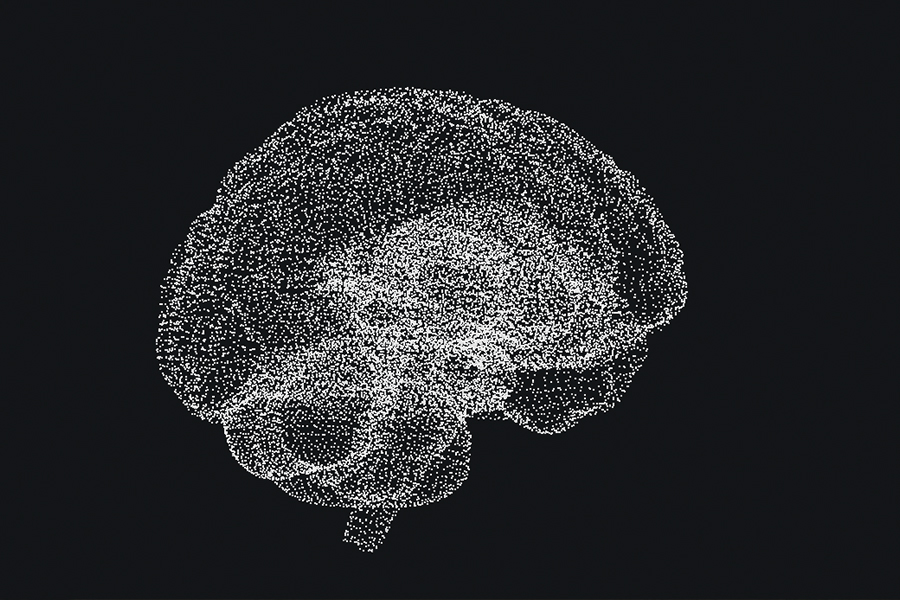
Neuroscience start-up Matter has secured US$26m in funding from Polaris Partners to try to find a hack for happiness. The firm is seeking to unlock a deeper understanding of happiness and wellbeing by providing its app users with personalised insights into their brain chemistry in a bid to pioneer solutions that address the current global unhappiness epidemic by transforming our understanding and management of mental wellbeing. Currently in its third year of clinical studies with leading labs in the fields of brain imaging and happiness research, Matter is on a mission to identify a biomarker for happiness.
Publication of the study, which explores the brain activity behind positive emotions, is expected later this year. Matter has released a beta version of its public app designed to provide users with a tool to record and reflect on their positive experiences to better understand the neurotransmitter activity behind them, allowing them to make changes in their daily lives to improve their health and wellbeing. Matter also offers users access to educational materials and a lecture series on the neuroscience of happiness. “We see strong evidence for a universal map of distinct positive emotions in the human brain,” said study lead Professor Rainer Goebel of the Maastricht University Brain Imaging Center.
3. Merlin’s Price Hikes For Sunny Days
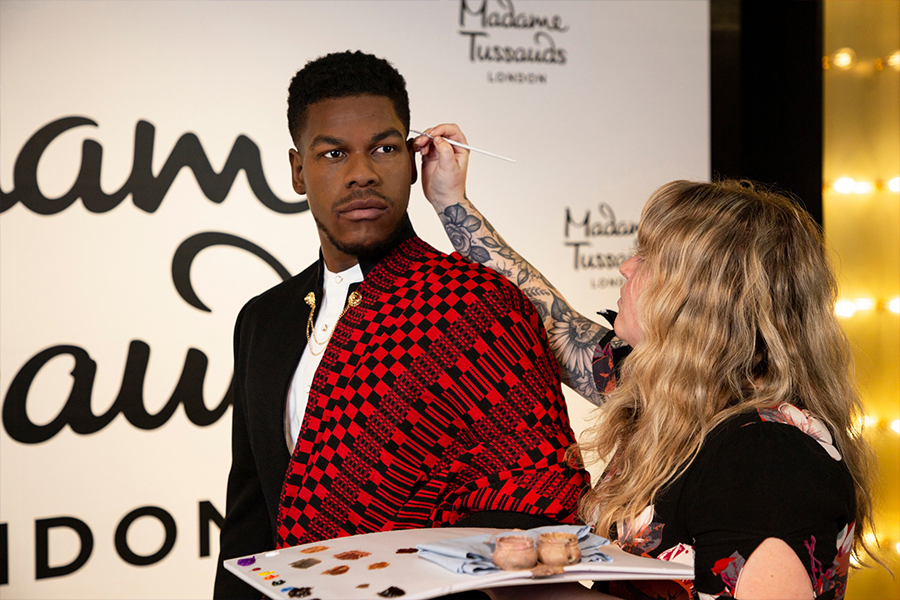
We all know about the school summer holidays price hike and now the same rules could apply to theme parks and attractions across the globe as juggernaut Merlin Entertainments, which boasts 62 million annual visitors across iconic attractions including Legoland, Thorpe Park and Madame Tussauds, has revealed that the implementation of a “dynamic” pricing model that sees peak season tickets rise in line with public demand, is here to stay. As reported by The Independent, the model, which has been adopted by airlines and hotels, has now hit the attractions sector and gives leaders in the field more control over their pricing, which they can tweak in line with seasonal demand.
“We had it in 2023 and we had the highest guest satisfaction scores in the history of the company, and seven million additional guests, so we’re definitely getting the signal that our processes are moving in the right direction,” said Merlin’s chief executive, Scott O’Neil, who believes the new pricing model helps to “protect the guest experience” during busier times of the year by managing queues, where wait times can be over an hour for the top attractions. On the flipside, discounted tickets will be offered during off-peak times for those happy to visit on less desirable dates if it means they pay less for the experience. It seems to be paying off – Merlin’s revenues jumped by 8% to £2.1 billion in 2023.
4. The Shining Hotel To Become Horror Museum

Exiting news for horror fans – master of the art Jason Blum, the producer behind horror hits such as Paranormal Activity and Five Nights at Freddy’s, is due to turn the Colorado hotel that inspired both Stephen King’s The Shining and Stanley Kubrick’s film adaptation of it into a horror museum. As reported by Indie Wire, Blum is working on a US$70m project to turn the Stanley Hotel in Estes Park, where King stayed shortly before writing his seminal novel, into a museum dedicated to things that go bump in the night. Hallowed ground for horror fans, the venue will become a major driver of tourism to Colorado.
Called the Overlook Hotel in the book, the hotel, which opened in 1909, will be turned into the Stanley Film Center, an ever-evolving horror exhibit curated by Blumhouse in collaboration with the Colorado Office of Film, Television and Media. Being billed as a “mini Academy Museum dedicated to horror”, the venue will showcase memorabilia from Blumhouse’s vast film library, which includes reboots of legendary flicks such as Halloween and The Exorcist. “Fans are going to get closer than ever to their favourite films, though they may want to keep their distance with a few of the ‘items’ in our collection,” Blum said.
5. Live Music Pulls On Our Heartstrings

If you’ve ever wondered why songs seem to affect you more powerfully when you hear them live you’re not imagining it, as new scientific research has found that live music tugs harder on our heartstrings. As reported by New Scientist, live performances of songs triggers greater activity in the part of the brain linked to processing emotions in a way that recorded music can’t. The study, conducted by Sascha Frühholz at the University of Zurich, involved a dozen 30-second pieces of music, including six designed to elicit negative emotions and six to spark joy.
As part of the study 27 people listened to the 12 pieces twice – once performed by a live pianist, which the participants heard through a speaker, and once as a recording. The pieces were played at random and the participants, whose brains were being monitored by an MRI scanner, didn’t know when they were hearing a recording or live music. The study found that live performances of both the negative and positive pieces led to increased brain activity in the left amygdala – the region of the brain linked to assigning sensory stimuli to certain emotions. Frühholz believes live music intensifies our emotional response due to its free-flowing nature and the collective social experience of a concert.
6. Virtual Try-On Tech Improving CX
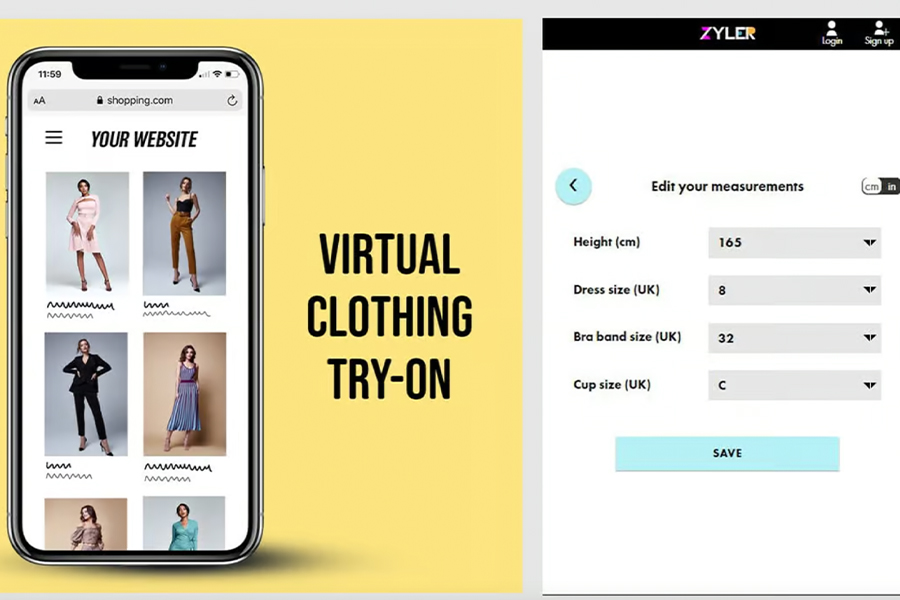
In our era of online shopping, returns have become the bane of retailers’ lives, so the savvy ones are increasingly looking to AI tech to help solve the problem. As reported by Vogue, virtual try-on tech through augmented reality is coming of age and is being more readily adopted by luxury fashion labels. Brands are experimenting with tech tools that let shoppers create digital twins that perfectly match their proportions. These true-to-size avatars are based on customer measurements, images and body-type details and work by fitting digital clothing onto digitised versions of the customer’s body to help them visualise how they will look in the item and select the best size for their shape.
Yoox Net-a-Porter has been testing the tech on 90 styles from its house brand, Mr P, sold on men’s site Mr Porter, while Balmain has been busy testing virtual fitting and styling with seven ready-to-wear designs. Photo-editing software firm Anthropics recently launched Zyler, a virtual try-on for menswear, which has been adopted by Italian fashion brand Kangra and bespoke menswear retailer Larusmiani. Other firms to trial similar technologies include Khaite, John Lewis, Macy’s and gender-neutral brand Dapper Boi. The concept is a win-win, as it should help to increase customer satisfaction and profit margins while reducing returns and fashion firms’ carbon footprints.
7. Wellness Clubs Are Booming In The Big Apple
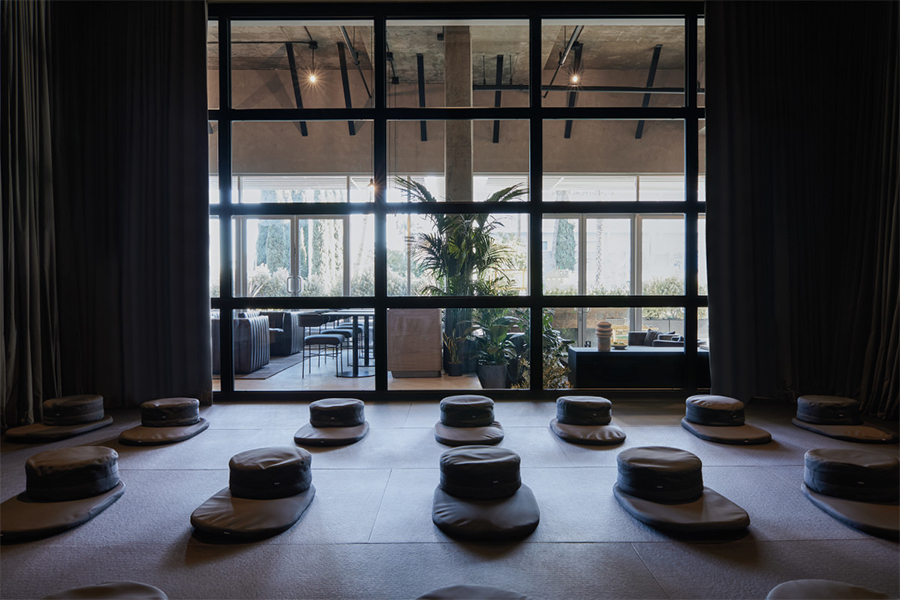
Are wellness clubs the new gyms? These sanctuaries of serenity are taking the Big Apple by storm, according to Athletech News, with wellness brand Continuum leading the charge. Opening a flagship 25,000 square-foot site in Greenwich Village in May, the “intentionally exclusive”, members only Continuum Club already has a sizable waiting list of frazzled New Yorkers keen to indulge in its one-on-one personal training sessions, massages, hyperbaric oxygen therapy, Himalayan salt saunas and cold plunge treatments. The goal, according to CEO Jeff Halevy, is to deliver “ideal total wellness” through physiological data sets and biometrically informed AI bespoke to each member.
Continuum plans to roll out its AI-driven wellness app beyond its club locations so users can access biometric analysis and personalised prescriptions on the go. Also new on the wellness circuit is Remedy Place, a social wellness club that opened in the Flatiron district in 2022, which offers functional medicine, acupuncture, cupping, ice baths, infrared saunas and vitamin IV drips. Its socially focused Flatiron neighbour, The Well, specialises in vitamin therapy, yoga, Chinese medicine, vibrational energy healing and health coaching. With modern living putting city dwellers under intense pressure, the need for oases of calm where workers can relax, unwind and recharge has never been greater.
Want to be part of the innovators leading the Experience Revolution forward? Stay ahead of the latest experience trends and meet the people at the edge of the Experience Economy at the next World Experience Summit in New York City, June 12-14. Limited tickets available now.

